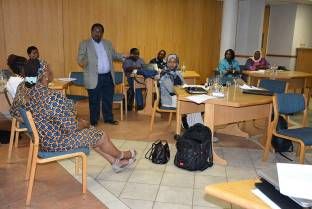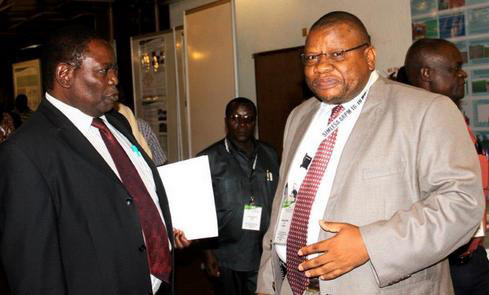Empowering Women in Agriculture through SIMLESA
CIMMYT’s Sustainable Intensification of Maize-Legume-based Cropping Systems for Eastern and Southern Africa (SIMLESA) project and the Agricultural Research Council (ARC) of South Africa hosted a five-day gender training workshop on 24-29 August in Pretoria, South Africa.
Called “Situating Gender in SIMLESA”, the workshop aimed at increasing awareness of gender issues in agricultural research and development, and identifying practical solutions to integrate gender into SIMLESA. It brought together a core team comprised of SIMLESA’s project leader, project manager, gender focal points, monitoring and evaluation specialist, communications specialist, and country coordinators. In his opening remarks, Litha Magingxa, ARC Group Chief Executive (Agri-Economics and Capacity Development), commended SIMLESA for the gender training.





 From 16-19 March 2015, the Sustainable Intensification of Maize-Legume Based Cropping Systems for Food Security in Eastern Africa (SIMLESA) organized a review and planning meeting in Harare, Zimbabwe, with the objective of utilizing and building upon the results of the project’s phase (2010‐2013), to produce a work plan, and to get feedback about the plans formulated from partners.
From 16-19 March 2015, the Sustainable Intensification of Maize-Legume Based Cropping Systems for Food Security in Eastern Africa (SIMLESA) organized a review and planning meeting in Harare, Zimbabwe, with the objective of utilizing and building upon the results of the project’s phase (2010‐2013), to produce a work plan, and to get feedback about the plans formulated from partners.